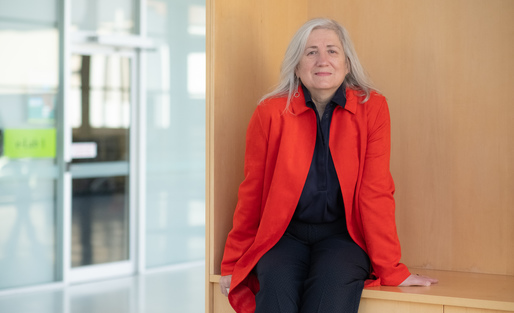When the independent University of New England was born in January 1954, the Armidale Express explained to its readers that the institution "does not intend to be a remote place, catering only for the select few, and divorced from the life of its native district".
Australia's first regional university has lived up to this expectation. While building a global presence (there are many UNE degrees in countries like Hong Kong, the USA and Malaysia), the University has been an influential force for good in the prosperity and health of the New England-North West regions.
But what now? From any angle, 2020 and the years ahead are asking different questions of our University than those that were being asked in 1954.
When UNE was founded on great aspiration and little money, there were 2.7 billion people in the world. Computing was still largely theoretical and Australians didn't have television. Natural resources were there to be exploited – it was a time of dam-building – and wool was worth "a pound a pound". Jobs were for life.
Today, the planet holds eight billion people. The digital construct has become a central element of our lives. Natural resources are being depleted, and efforts to create more sustainable resource management models have so far been inadequate. Agriculture no longer drives Australia's economy, but efficient food and fibre production has never been more important. Jobs are no longer for life; nor are careers.
In undertaking to lead Australia's first regional university, I have also undertaken to recalibrate its mission.
That means enquiring deeply into what this 21st Century operating environment means for us as a university, and more particularly, as a regional university.
One thing has remained constant since the beginning, and will remain a constant into the foreseeable future. At the outset, UNE recognised the need for distance education, and in the mid-1950s was a global pioneer in the delivery of external degrees that carried the same integrity as degrees earned on-campus. We have been successful in this regard.
The University remains dedicated to supporting anyone with the desire to undertake higher education, and the capability to complete their studies, wherever they are. The doors of your regional university are open to the world and we play our part in creating a functional work force for a modern Australia.
We have nurtured an on-campus student community through UNE's residential colleges, helping young Australians to step into the world and yet remain connected to home. To support our future on-campus experience, we are looking at international models of vertically integrated systems that blend study, accommodation and experiential learning practice.
While learning will always be UNE's core business, we continue to be dedicated to "searching disinterestly for the truth" on behalf of country communities.
UNE has an ongoing history of excelling in research fields natural to its situation, like agriculture, ecology and natural resources, and education.
As the 21st Century thrusts new challenges on us, we intend to deepen our search for truth into domains like water resource management and human health in a rural context.
We are also revitalising another founding UNE principle, that learning isn't a degree but a lifelong process. We hope to make the resources of the University part of a region-wide learning province that instils a zest for learning and discovery from an early age, and supports these qualities across the course of life .
Done well, a learning province could also drive "educational tourism", an attractive mix of travel and the acquisition of skills and knowledge.
These are a sampling of the ideas that are informing my thinking about the future of the University. There are others, and there will be more.
In the meantime, I leave you with the pledge of UNE's first Vice-Chancellor, Robert Madgwick, who in 1956 told troubled communities on the Clarence River that "the full force of the University" was behind them. That remains the case for all the communities that UNE sits within.
Professor Brigid Heywood, UNE Vice-Chancellor and CEO


